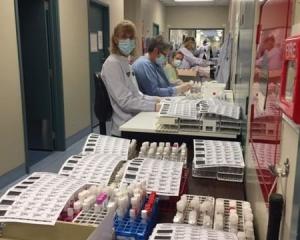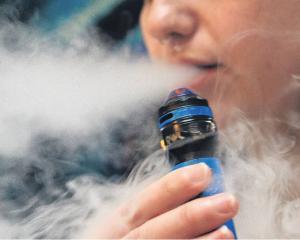Spine and neck injuries, post-surgery complications and a bad bleed suffered by patients in southern hospitals were caused by overseas-trained surgeons' lack of technical expertise, a new report says.
The Southern District Health Board has since reviewed how it assesses the competence of new surgeons who trained overseas.
The SDHB has just released its annual adverse event report, which sets out issues which have caused harm to patients, or had the potential to cause harm.
Of the 66 incidents detailed, 37 involved clinical processes, 17 were falls, 10 were issues with clinical administration, and two were medication errors.
That was the highest number of adverse events since records began in 2007, and well up from the 50 reported last year.
"Adverse events can have a huge impact on the person involved and their whanau, family and friends, and while we cannot change the outcomes for these patients, we can take action, learn what has happened, and implement changes to prevent such events occurring in the future,'' SDHB chief medical officer Nigel Millar said.
"There has been a rise in the number of adverse events reported this year at Southern DHB ... this can indicate a number of factors including better reporting practices or an actual increase in events.''
The four adverse events caused by overseas-trained doctors involved compression of a spinal disc, failed neck surgery, inadequate spinal decompression, and a drain being placed incorrectly and causing a bleed.
The SDHB would not say if the four events involved the same surgeon.
"Surgery is provided by a team and not just an individual surgeon and the outcome is ultimately the responsibility of the Southern DHB,'' Dr Millar said.
"For these reasons we would not normally comment in any more detail about the adverse events we report, including comments on which health professionals are involved.''
The competency of the surgeons had been assessed before they were hired, a process which included ``direct observation'' of them at work.
After the four adverse events, that process had now been reviewed.
"The service needs to consider introducing a process of direct observation of surgical techniques for a defined number of procedures to assess competency,'' the report said.
"Referee checks must include a senior medical officer who was involved in supervision in the previous 12 months, training log books for first time consultant posts [should] be reviewed, and for more senior consultants, log books for the past two years to be supplied.''
The surgeons had not identified that they needed advice or support, and the SDHB should provide adequate supervision and reinstate weekly clinical meetings.
A revised orientation and induction plan for new surgeons was also put in place.
The SDHB has increasingly looked overseas to fill vacancies, and a recruitment drive in Britain earlier this year resulted in it hiring 15 new junior doctors from there.
The report also highlighted the issues at the SDHB's ophthalmology service, which was the subject of a scathing report by the Health and Disability commissioner earlier this year.
That and other similar complaints had earlier sparked the SDHB to have the service externally reviewed and a range of changes put in place.
The Adverse Events report detailed six instances where patients had lost visual function due to delays in follow-ups, treatment delays, incorrect diagnosis, and a patient whose appointment notification was sent to their son rather than the patient.
The SDHB had implemented a range of recommendations in the wake of the incidents.
"Our quality and safety process is founded on encouraging early and frank openness from our clinical teams when things do not go as planned - particularly if a patient has been harmed,'' Dr Millar said.
"We have worked hard to encourage this so that health professionals feel confident that when we have a problem they can speak openly and that we will focus on improvement.
"We are conscious that where blame comes into the consideration then we will not learn as fast and therefore not improve our systems as fast, which is our priority in order to limit the chances of things repeating.''
The SDHB worked hard to improve patient safety, and the adverse events reports had led to several improvements, Dr Millar said.
The Health Quality and Safety Commission released nationwide figures for adverse events on Friday.
In all, 631 adverse events were reported by DHBs in 2017-18: 317 clinical management events, 255 falls, 31 healthcare associated infections, 20 events related to medication or IV fluid, five consumer accidents and three events due to medical devices or equipment.
DHB mental health and addiction services reported 232 adverse events, and other providers reported 119 adverse events.
ADVERSE EVENTS
Events in 2017-18 included:
- Cardiac arrhythmia after patient given incorrect medication.
- Inappropriate prescription, patient died.
- Patient allowed to sleep on floor in inpatient unit, accidentally harmed.
- Surgery on wrong side of body, back not marked.
- Pending investigations include: patient died after missed follow-up; lifethreatening haemorrhage; delay in lung cancer diagnosis; fatal heart attack after delayed diagnosis; fatal tumour missed after delayed diagnosis; patient died after delayed diagnosis; procedural complication during chest drain insertion; unexpected death.












